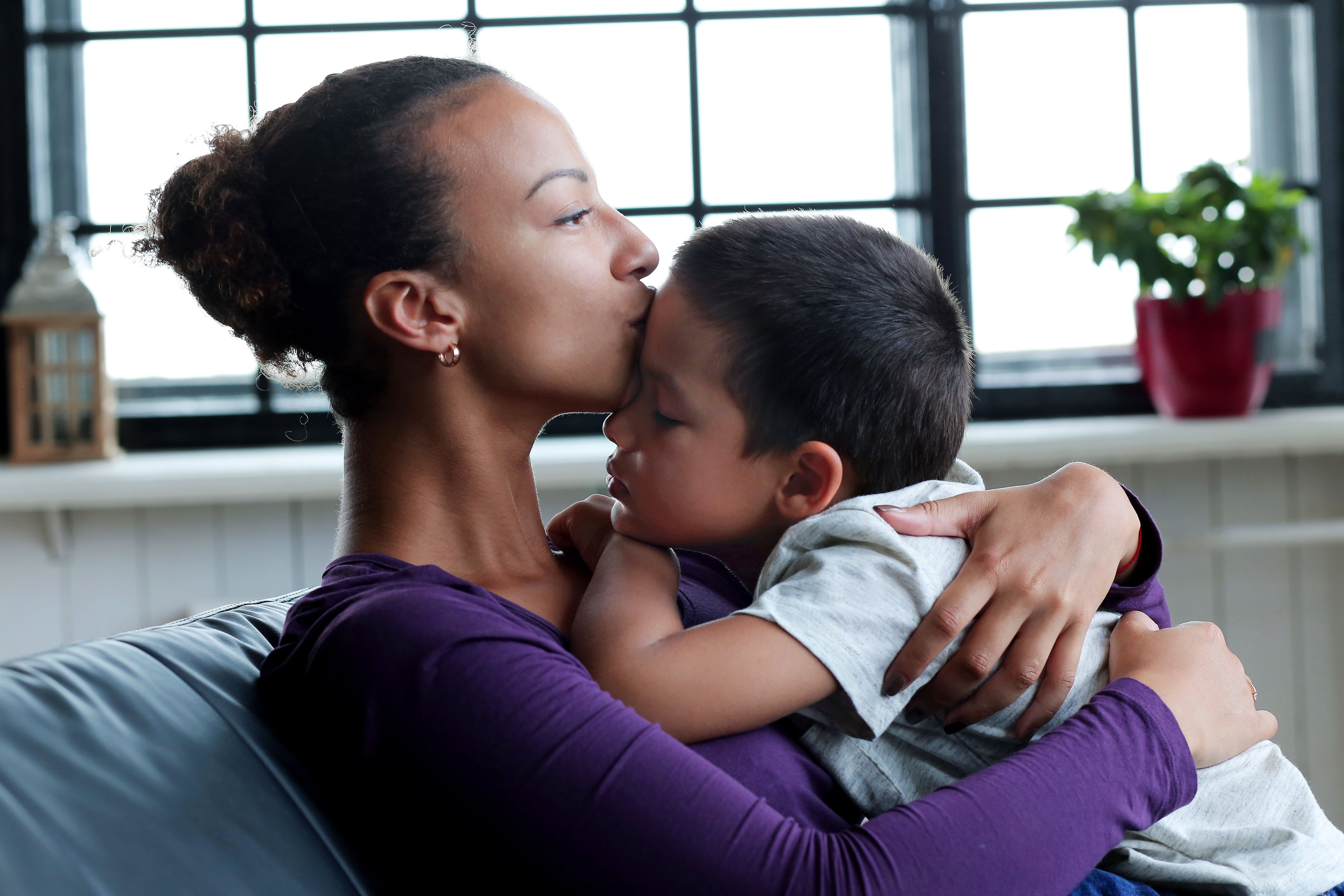As your child gets older, they may not want you to be as involved in their bedtime routine. However, it is still important to make sure your teen is getting enough sleep each night. The National Sleep Foundation recommends teenagers aged 14 to 17 years get between 8 to 10 hours of sleep every night.
Support your teen in sticking to a sleep schedule
Most young people experience changes in their sleep schedules as they get older. Let your teen take charge of their own bedtime but provide guidance if necessary. For instance, be clear about how many hours of sleep your teen should have each night and when you expect them to be in bed, especially during stressful situations.
In addition, encourage your teen to keep to regular bedtimes and wake up times on weekdays and weekends, even during stressful times or when there is no structured school. Some teens may see the lack of formal school or routine as a reason to allow later bedtimes and as a result, later wake up times, but try to encourage them to keep to a regular sleep and wake schedule.
Help your teen develop healthy habits
Advise your teen to avoid eating a large meal or drinking a lot right before bedtime. It is especially important for your teen to avoid coffee, tea, soda or pop, energy drinks and chocolate a few hours before bed. Caffeine and sugar tell your teen’s brain to stay up even later than usual. Smoking cigarettes and drinking alcohol will also interfere with their sleep.
Your teen's internal body clock can make them fall asleep later at night and wake up later in the day. You cannot change this, but you can encourage your teen to take part in physical activities to help overcome sleepiness during the day.
Discourage them from resorting to supplements or energy drinks to get them through any energy dips during the day. No pills, vitamins or drinks can replace good sleep.
If your teen hears their friends talking about their "all-nighters", remind them how good they feel after they get enough sleep. Staying up late to study does not usually help much. In fact, it will usually leave your teen too tired to concentrate properly the next day.
A drowsy driver is as dangerous as a drunk driver, causing many accidents each year. Advise your teen to call someone else for a ride if they ever feel sleepy before or during a journey.
Create a relaxing bedtime routine
If your teen is having trouble sleeping at night, encourage them to take some deep relaxing breaths, focusing on their breath as it goes in and out. Deep breathing for five to 10 minutes may help your teen become more relaxed and sleepy.
If your teen feels wide awake at bedtime, make sure their activities are relaxing to help make them sleepier. Encourage your teen to go for a short walk before bed, practise yoga, do some light stretching, read a book or write in a journal.
You can also have your teen watch this animation, which will remind them how they can get ready for a good night’s sleep.
Create a comfortable sleep environment
Make sure your teen’s mattress and pillow offer good support to their spine and that their room is cool and dark enough.
Encourage your teen to have a glass of water nearby so they do not need to get out of bed if they are thirsty during the night.
Keep the bed for sleeping only. Discourage your teen from doing their homework or using a computer in bed. These activities can cause your child to link bedtime with stress or active thinking when they are trying to sleep.
Avoid having a television, computer, tablet or cell phone in the bedroom. Watching television or using a computer, tablet or phone before going to sleep can stimulate the brain rather than relax it. In addition, your teen may get into the habit of turning on the television or checking their phone if they cannot stay asleep during the night.
Similarly, keep noise to a minimum after bedtime so your teen can get a good night’s sleep (although your teen may stay up later than you).
Tips for a happier morning
Get your teen in the habit of planning their breakfast for the next morning before bed. This could be as simple as cutting up some fruit or making a breakfast wrap they can quickly grab in the morning.
Encourage your teen to take a shower before bed if they have trouble waking up early to bathe. Warm water can make your teen sleepy at night. Getting their shower out of the way also lets them hit the snooze button for a bit longer in the morning.
Remind your teen to pack their backpack and lay out their clothes the night before. At night, there is more time to look for missing homework or that favourite t-shirt that might still be in the washing machine.
Suggest that your teen keep a diary or a to-do list for the next day. If they jot notes down before they go to sleep, they will be less likely to wake up feeling worried or stressed.
Let your teen choose an alarm clock that wakes them up in the morning. Ask them when is the absolute latest time they need to wake up in the morning and calmly wake them if they are still asleep then.
When to see a health-care provider about your teen’s sleep
Take your teenager to a health-care provider if:
- they are excessively sleepy during the day
- you suspect they might have anxiety, depression or any other mental health concern
- you or your teen have any other concerns about sleep or daytime performance, especially if you think it is affecting their grades at school.

